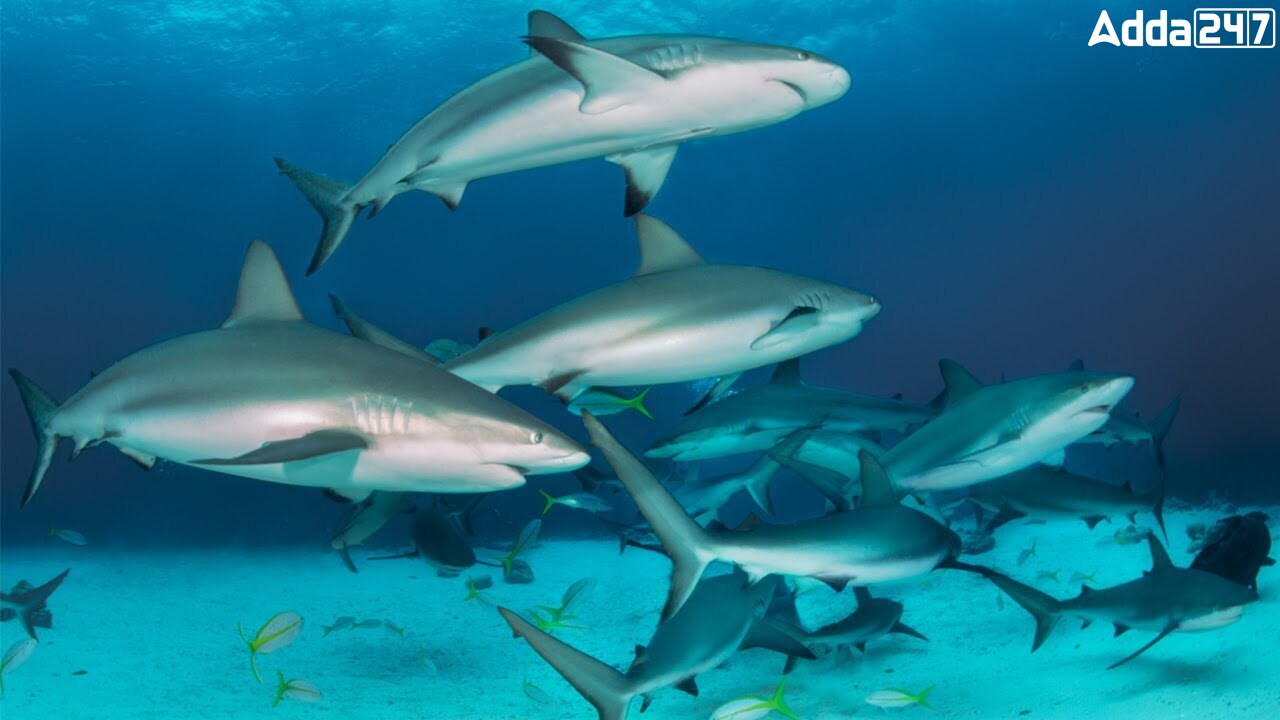Tamil Nadu dominates the illegal trade in shark body parts, comprising nearly 65% of seizures between January 2010 and December 2022, as per a recent analysis by TRAFFIC and WWF-India. This alarming trend poses a significant threat to marine biodiversity, with Karnataka, Gujarat, Kerala, and Maharashtra also contributing to this illicit trade.
Key Findings
- TRAFFIC and WWF-India conducted a comprehensive study titled ‘Netted in illegal wildlife trade: Sharks of India’.
- The confiscated shark products were intended for destinations such as Singapore, Hong Kong, Sri Lanka, and mainland China.
- The global demand for shark fins, primarily for shark-fin soup, remains a major driver of illegal shark fisheries.
Concerns of Overfishing
- Sharks play a crucial role in marine ecosystems as apex predators, regulating various marine species’ populations.
- Overfishing, combined with sharks’ low biological productivity, elevates their risk of extinction.
- Despite 160 reported shark species in India, only 26 are granted the highest protection status under wildlife protection laws.
Challenges and Threats
- The illegal shark trade poses a grave conservation threat, exacerbated by misdeclaration of species on permits.
- Inadequate monitoring mechanisms hinder the differentiation between legal and illegal shark trade.
- Identifying shark fins accurately remains a challenge due to the multitude of potential shark species in trade.
Countermeasures
- TRAFFIC has developed 3D-printed replica fins to aid law enforcement agencies in identifying dried and unprocessed fins.
- A new 3D Shark Fin Identification Guidebook has been published, focusing on 11 commercially traded shark and ray species.
- WWF-India and TRAFFIC collaborate closely to distribute resources and knowledge to enforcement agencies across India’s coastal regions, airports, and seaports.
WWF India’s Role
- Established in 1969, WWF India aims to mitigate environmental degradation and foster harmony between humans and nature.
- Through science-based approaches, WWF India addresses various conservation issues, including species and habitat preservation, climate change, and environmental education.




 Punjab Launches ‘Meri Rasoi’ Scheme: Fre...
Punjab Launches ‘Meri Rasoi’ Scheme: Fre...
 Amit Shah Lays Foundation of 10th Assam ...
Amit Shah Lays Foundation of 10th Assam ...
 475 Year Old Vasai Cathedral Wins UNESCO...
475 Year Old Vasai Cathedral Wins UNESCO...








